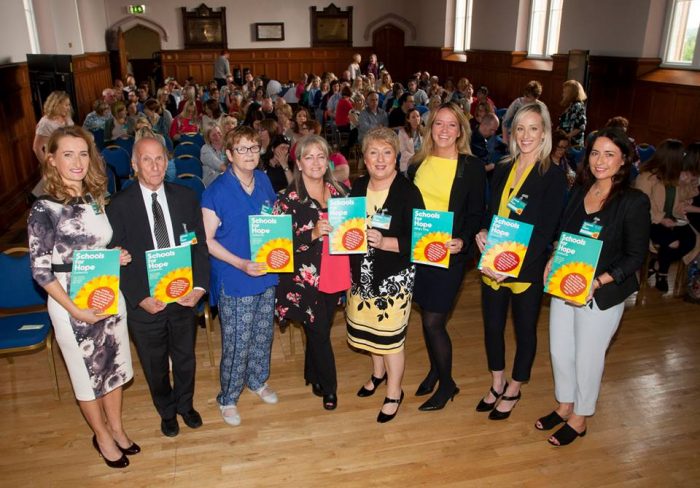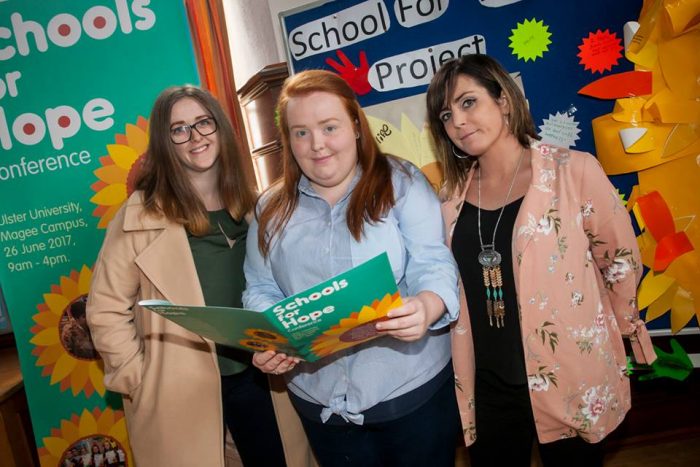 A MAJOR conference in Ulster University, Magee Campus heralded the launch of ‘Schools for Hope’, a new and innovative resilience concept for children and young people.
A MAJOR conference in Ulster University, Magee Campus heralded the launch of ‘Schools for Hope’, a new and innovative resilience concept for children and young people.
Schools for Hope is a curriculum project developed by the International Foundation for Research and Education on Depression (iFred).
The mental health and well-being awareness programme is based on research that suggests hope is a teachable skill.
It aims are to equip children and young people, their educators and parents with the tools they need to find and maintain hope even during the most trying of times.
The project is led by the Health Improvement Service of the Western Trust, in partnership with the International Foundation for Research and Education on Depression (iFred), The Outer West Neighbourhood Renewal Partnership (OWNRP) and Community partners, Ulster University (UU) and local primary and post primary schools in the area.
A pilot programme was implemented over a 10 week period in five primary schools and two secondary schools in the Derry and Strabane areas as part of a unique partnership model.
The tailored international programme was researched, planned, developed and delivered by the Western Trust and local community and monitored and evaluated by Ulster University.
The research from the pilot programme will be presented at The Schools for Hope conference on 26 June 2017 with the highlight undoubtedly being the International Programme Founder Kathryn Goetzke and colleagues Myron L. Belfer and Kristy L. Stark as keynote speakers.
Kathryn Goetzke, iFred Founder, states: “We developed this programme based on the shocking statistic, published in the Journal of Adolescent Health, that one in nine kids were self-reporting suicide attempts prior to graduating high school, with a jump at age 11.
“We knew we couldn’t address everyone, so we started at the critical age of 10 to help build skills at this time. Since hopelessness is the primary symptom of suicide and the number one symptom of depression, it only made sense for us to focus on hope.
“And after studying all the current literature on hope, suggesting it was a skill that could be taught, we honed in on this as our programmatic solution.”
Dr. Myron Belfer, Professor of Psychiatry, Children’s Hospital Boston and Harvard Medical School, outlined that it is important to note that “Hope is tangible and teachable. It is an essential ingredient for a successful life trajectory.”
Marie Dunne, pioneer of the programme and Western Trust Mental Health Specialist commented on the cutting edge programme outlining that:
“The aim of this project is to equip young people with information, knowledge and skills that will give them the personal self-esteem to nurture healthy relationships with themselves and those around them to improve their quality of life.
 “Above all, it will also teach them to have hope and the additional skills of understanding and managing their own mental well-being.”
“Above all, it will also teach them to have hope and the additional skills of understanding and managing their own mental well-being.”
The Outer West Neighbourhood Renewal Partnership Manager acknowledged that through the development of a new community based hope curriculum, we aim to equip children and adolescents with the social and emotional learning tools necessary to have and maintain hope throughout life, as well as providing a long-term resource for suicide prevention.
Tags:




